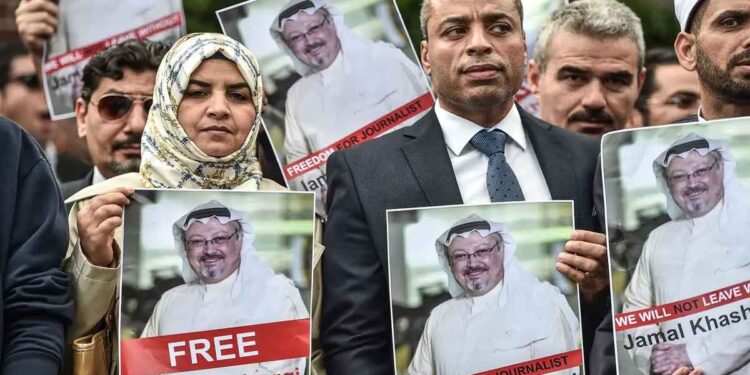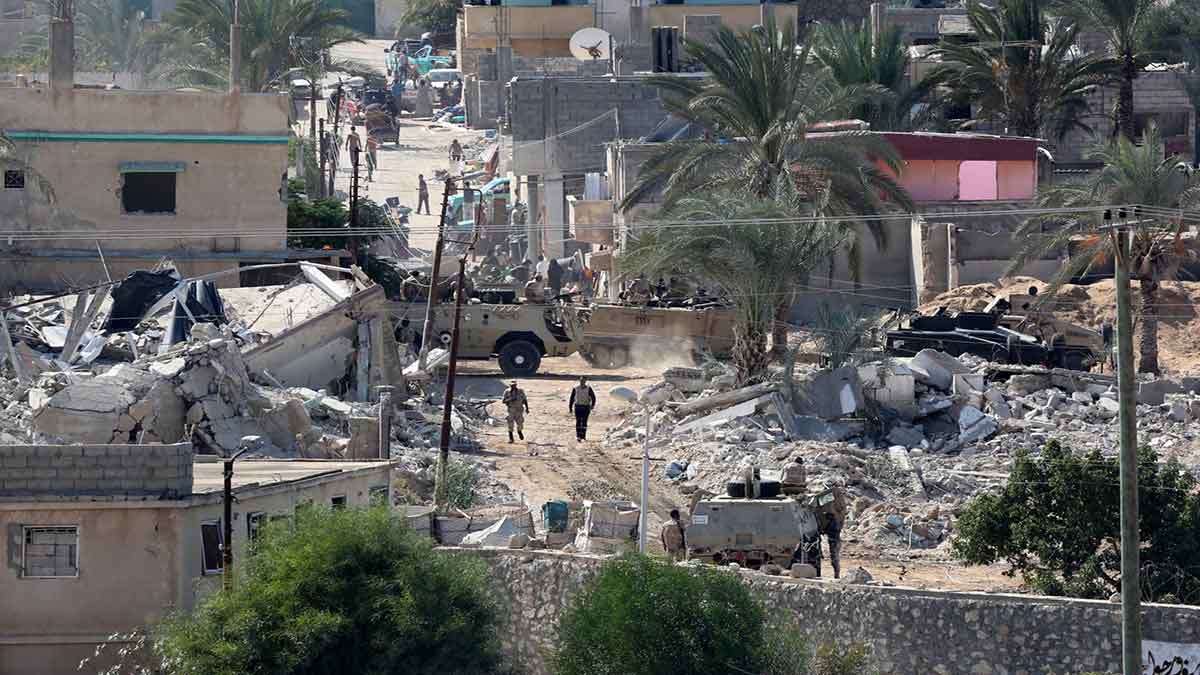European Parliament subcommittee meeting calls for global action to win human rights in Saudi Arabia
A meeting at the European Parliament has called for the international community to put pressure on Saudi Arabia to improve its human rights record.
The European Parliament Subcommittee on Human Rights meeting, held on 16 March 2021, focused on Saudi human rights violations at the hands of the Gulf state led by de facto leader crown prince Mohammed bin Salman.
Speakers raised the issues of improving women’s rights in the kingdom, and the implications of the murder of journalist Jamal Khashoggi in 2018.
Participants at the meeting included international human rights barrister Rodney Dixon QC and Georgetown University fellow and Saudi Arabia human rights campaigner Abdullah Alaoudh.

Also speaking Julia Legner, from the human rights group ALQST, and Rachid Mesli, a representative of the Swiss-based NGO Alkarama.
Speakers raised the lack of action by the international community in putting pressure on the kingdom over its policies. It was noted that despite pressure for an international investigation into Saudi human rights violations from the UN Special Rapporteur on extrajudicial, summary or arbitrary killings, Anges Callamard, in the wake of Khashoggi’s killing, none had been conducted.
Speakers also discussed the on-going imprisonment of women’s rights activists in Saudi Arabia, who are often detained in appalling conditions despite not committing any offences.
Hanna Neumann, chair of the European Parliament’s Committee of the Arabian Peninsula, spoke of the importance of raising Saudi human rights violations in the parliament. She said:
“Just a few months ago, the European Union has actually adopted a set of rules to establish many global human rights sanctions mechanisms that would allow the EU… to target individuals, entities and bodies responsible for or involved in serious human rights violations worldwide.
She added that while the US released a CIA report into the murder of Jamal Khashoggi, it “apparently refrained from taking strong actions on the Saudi ally”, along with many EU member states. On the European Parliament’s resolution calling for an international investigation into the killing, she said “I think we should do everything to ensure this piece of paper is not just a dead letter”.
She added: “I think it is time that Saudi Arabia commits towards a more serious respect for fundamental human rights for its citizens and foreigners who live and work in the kingdom.”
Neumann called for Saudi Arabia to transition to democracy, and for women and men to enjoy equal rights.
Rachid Mesli said: “If the new American administration is already expressing interest into human rights in Saudi Arabia, Europe also needs to remain a leader in defending human dignity including in its relations with the powerful in this world.”
She also noted the ability of the EU to target individuals with sanctions, which she said should target the “men at the very head of the chain of command, and the crown prince Mohammed Bin Salman himself”.
Julia Legner raised several points about human rights in Saudi Arabia, including the killing of Khashoggi, the imprisonment of women’s rights activists and the application of the death penalty to minors.
She said: “It is extremely important for us all to realise that despite the Saudi authorities’ promise of reform and their efforts over the past two years to convince the west that they are modernising, the human rights situation in Saudi Arabia has deteriorated significantly since Mohammad Bin Salman became crown prince in 2017.”
Abdullah Alaoudh gave a vital contribution on behalf of human rights advocates in the Arab world. He shared the story of his father, 63, who has been held in solitary confinement for defending the rights of others.
He noted that the parliament already had the ability to put pressure on the Saudi regime: “The European Parliament has shown a mechanism to sanction entities and individuals for human rights violations.”
Alaoudh added that the case of Khashoggi could be highlighted in order to impose sanctions on the regime. He called for such sanctions to be placed on those responsible for human rights violations, singling out Bin Salman himself, as more widespread sanctions would lead to greater abuses of power.
Sanctioning Bin Salman, he said, could lead to changes – such as the release of his imprisoned father.
The consensus of the meeting was for meaningful consequences to be faced by Saudi Arabia’s rulers for the murder of Khashoggi, its violations of the rights of human rights activists and the targeting of women’s rights campaigners in the kingdom.
Speakers called on European countries to increase pressure on the regime in order to promote democracy, end discrimination against women and allow Saudi citizens to enjoy their fundamental human rights.
Read also: UN joint declaration condemns human rights situation in Egypt





























